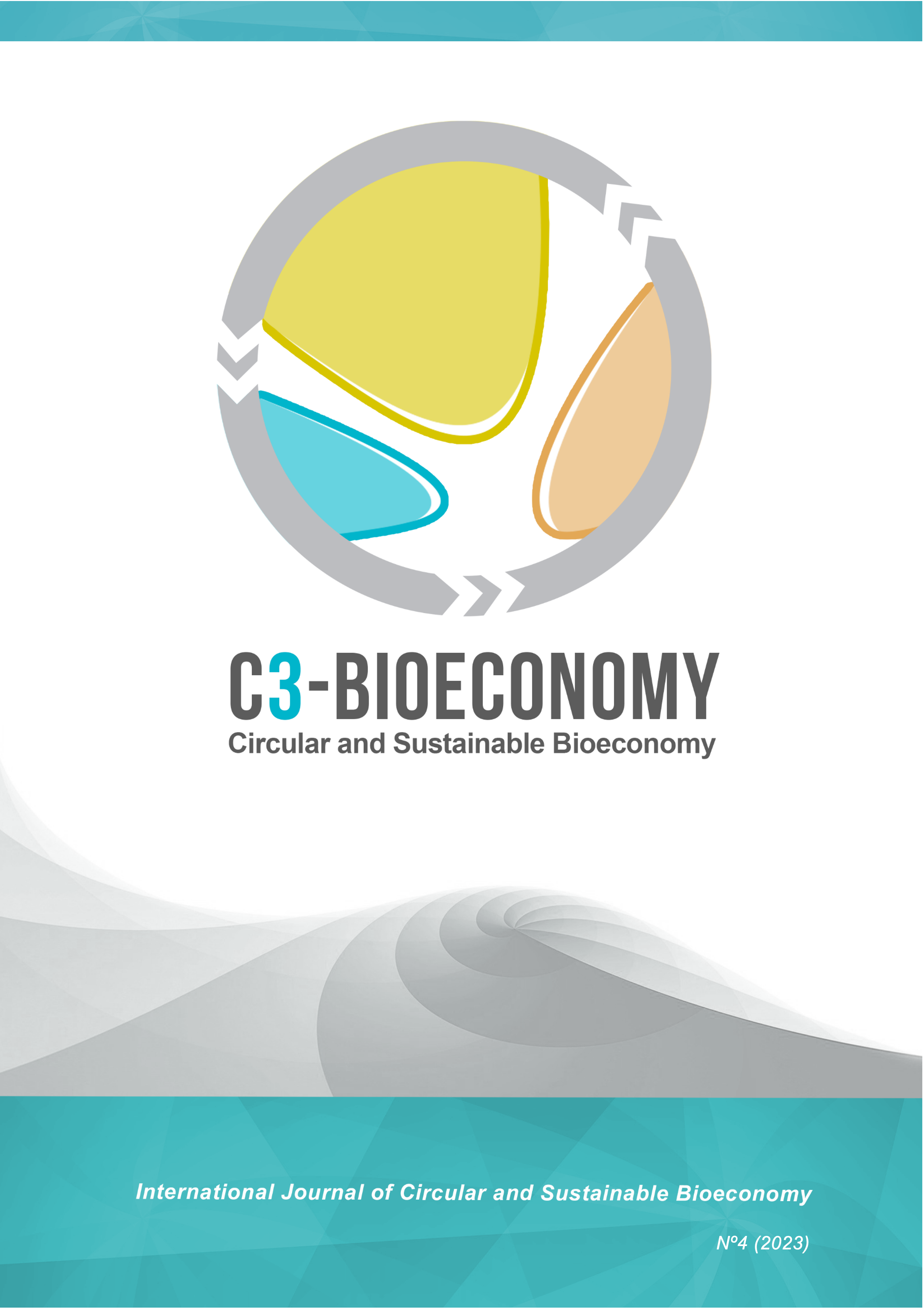Favorable Environmental and Economic Effects of Corn Ethanol Coproducts in Brazil
Main Article Content
Abstract
Brazil is a traditional producer of fuel ethanol from sugarcane with coproduction of sugar. With this model, producing sugar and ethanol, Brazil became the first producer and exporter of sugar and the second producer of fuel ethanol. However, this model can no longer be expanded. Corn ethanol is becoming the alternative to boost fuel ethanol because of its potential to produce protein which can be used to feed beef cattle. Brazil employs nearly 20% of its territory, nearly 200 Mha, to produce beef cattle and corn ethanol coproducts such as DDG[1], which are the key element to reduce pasture land. This article analyzes this new economic activity in Brazil as well as its potential to be combined with environmental policies to reduce or even stop deforestation in Brazil.
[1] DDG is the abbreviation of Dry Distillers Grains, a coproduct from corn ethanol production, rich in fiber and protein. DDG is commonly used as animal feed, particularly for beef cattle.
Downloads
Publication Facts
Reviewer profiles N/A
Author statements
Indexed in
-
—
- Academic society
- N/A
- Publisher
- Universidad de Córdoba
Article Details

This work is licensed under a Creative Commons Attribution-NonCommercial-NoDerivatives 4.0 International License.
Proposed policy for journals offering open access. Those authors who publish in this journal accept the following terms:
a) Authors will retain their copyrights, but guarantee the journal the right to the first publication of their work, which will be simultaneously subject to the Creative Commons Recognition License , which allows third parties to share the work provided that the author and initial publication in this journal is indicated.
b) Authors may subscribe other non-exclusive license agreements for the distribution of the work published (for example: place it in an institutional electronic archive, or publish it in a topical volume) provided that the initial publication in this journal is duly noted.
Authors are allowed and even encouraged to disseminate their work via the Internet (e.g., in institutional electronic files or on their website) before and during the submission process, as this can foster valuable exchanges and increase citations of the work published. (See The effect of open access).
References
BENEDETI, P.D.B., PRADOS, L.F., COSTA E SILVA, L.F., LOPES, S.A., VALADARES FILHO, S.C. “Planilha para cálculo das exigências nutricionais de bovinos em crescimento e terminação (BR-Corte 2010 e BR-Corte 2016)”. 2016. Disponible en www.brcorte.com.br. Acceso en 02/05/2023.
CORTEZ, L.A.B. (Coord.)(2010). “Sugarcane Bioethanol: R&D for productivity and sustainability” ISBN 978-85-212-0530-2, Editora Edgard Blucher, 992p. Disponible en: http://pdf.blucher.com.br.s3-sa-east-1.amazonaws.com/openaccess/sugarcane-bioethanol/completo.pdf
CORTEZ, L.A.B. (Org.) (2016). “Universidades e empresas: 40 anos de ciência e tecnologia para o etanol brasileiro” 224p., Editora Blucher, São Paulo.
CORTEZ, L.A.B. and ROSILLO-CALLE, F. (2023). “The Future Role of Biofuels in the New Energy Transition” Editora Blucher, São Paulo. (in Press)
DA SILVA, A.L. and J.A. CASTAÑEDA-AYARZA. (2021). Macro-environment analysis of the corn ethanol fuel development in Brazil. Renewable and Sustainable Energy Review, 135, 110387, 14p.
DE SOUZA, N. R. D., FRACAROLLI, J. A., JUNQUEIRA, T. L., CHAGAS, M. F., CARDOSO, T. F., WATANABE, M. D., & CORTEZ, L. A. B. (2019). Sugarcane ethanol and beef cattle integration in Brazil. Biomass and Bioenergy, 120, 448-457.
DE SOUZA, N.R.D. de. (2017). Techno-Economic and Environmental Evaluation of Beef Pasture Intensification with Sugarcane Ethanol. Tese de Mestrado, Faculdade de Engenharia Agrícola-FEAGRI, UNICAMP, 86p. file:///E:/Nariê/Tese%20Nariê.pdf
ERICKSON, G.E., T.J. KLOPFENSTEIN, D.C. ADAMS, and R.J. RASBY. (2005). Utilization of corn coproducts in the beef industry. - A joint project of the Nebraska Corn Board and the University of Nebraska-Lincoln, Institute of Agriculture and Natural Resources, Agricultural Research Division, Cooperative Extension Division. www.nebraskacorn.org
IBGE, Base Agrotec de la SGE/ Embrapa in EMBRAPA (2005) “Sistemas de Produção de Gado de Corte no Brasil: uma descrição com ênfase no regime alimentar e no abate” • no Regime Alimentar e no Abate” Documentos 151, ISSN 1517-3747, Brasil, Octubre, 2005. Disponible en Sistemas de produção de gado de corte no Brasil: uma descrição com ênfase no regime alimentar e no abate. - Portal Embrapa
LEE, U. et al. (2021). Retrospective analysis of the U.S. corn ethanol industry for 2005–2019: implications for greenhouse gas emission reductions. Biofpr, DOI: 10.1002/bbb.2225; Biofuels, Bioprod. Bioref. 15:1318–1331 (2021). Disponible en: https://onlinelibrary.wiley.com/doi/full/10.1002/bbb.2225
MOREIRA, M.M.R.; J.E.A. SEABRA; L.R. LYND; S.M. ARANTES; M.P. CUNHA; J.J.M. GUILHOTO. (2020). Social-Environmental and Land-Use Impacts of Double-Cropped Maize Ethanol in Brazil. Nature Sustainability, 3, pages209–216. Disponible en: https://www.nature.com/articles/s41893-019-0456-2
SALLES FILHO, S.L.M.; CORTEZ, L.A.B.; DA SILVEIRA, J.M.J.; TRINDADE, S.C. (Editors). (2016). “Global Bioethanol: evolution, risks, and uncertainties” Elsevier and Academic Press, ISBN: 978-0-12-803141-4, 258p.
NASSAR, A. M.; RUDORFF, L. B.; ANTONIAZZI, L. B.; AGUIAR, D. A.; BACCHI, M. R. P.; ADAMI, M. (2008). Prospects of sugarcane expansion in Brazil: impacts on direct and indirect land use changes. In: ZUURBIER, P.; Van de VOOREN, J. (Eds.), Sugarcane Ethanol, Wageningen Academic Publishers, Wageningen, The Netherlands, p. 63-93.
NEVES, M.F. A Sustentabilidade do Etanol de Milho no Brasil / ICMPA - Integração Cana, Milho e Proteína Animal. (2020). Disponível en: https://drive.google.com/file/d/15HLtyA6XcV1o4LOEyVIa89SDeM8_lEcj/view?ts=63c09ab3
OLIVÉRIO, J.L. Usinas Flex – usina de etanol de cana e milho. Presentación DEDINI ppt, 51 slides (sin fecha)
RAJAGOPALAN, S., E. PONNAMPALAM, D. McCALLA, and M. STOWERS. (2005). Enhancing Profitability of Dry Mill Ethanol Plants. Applied Biochemistry and Biotechnology, 120(1):37-50. Disponible en: https://europepmc.org/article/med/15640556
Renewable Fuels Association. How Ethanol is Made. (2005). Disponible en: https://ethanolrfa.org/ethanol-101/how-is-ethanol-made
ROSILLO-CALLE, F. and JOHNSON, F. (2010). Food versus Fuels: an informed introduction to biofuels, Disponible en: https://www.amazon.com.br/Food-versus-Fuel-Informed-Introduction/dp/1848133839
US GRAINS COUNCIL. (2023). High Protein Handbook for DDGS. Disponible en: https://grains.org/buying-selling/ddgs/user-handbook/
VALOR ECONÔMICO. (2018). Etanol avança no Centro-Oeste. Agronegocios. 30/01/2018. Disponible en: https://valor.globo.com/agronegocios/noticia/2018/01/30/etanol-de-milho-avanca-no-centro-oeste.ghtml


